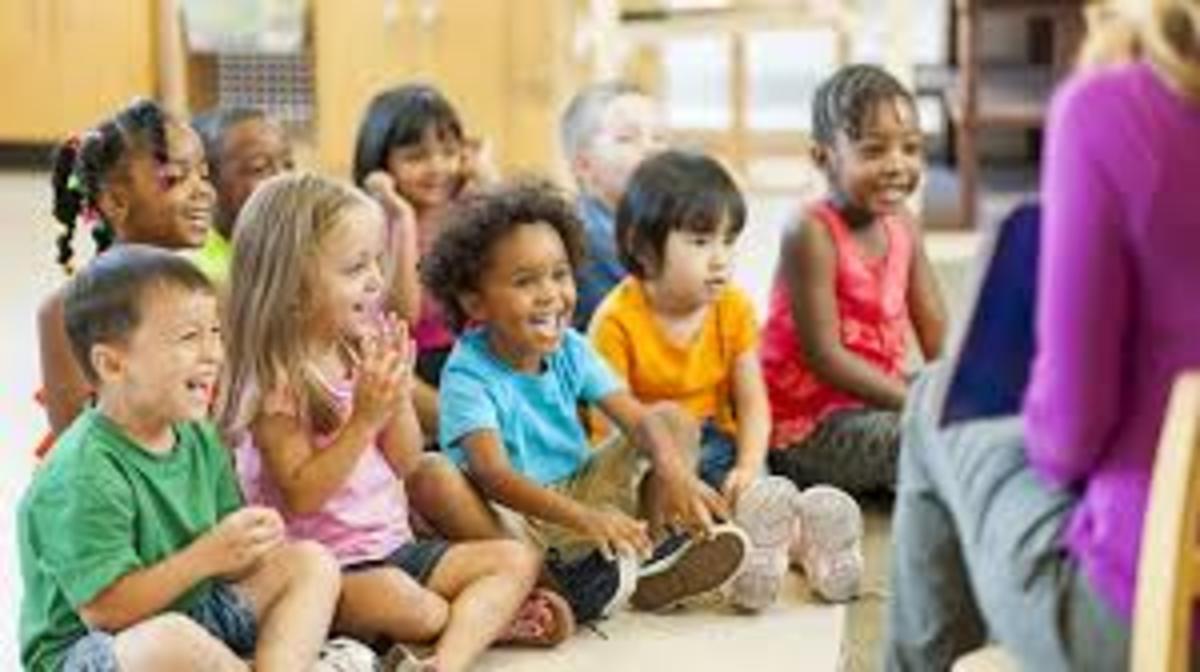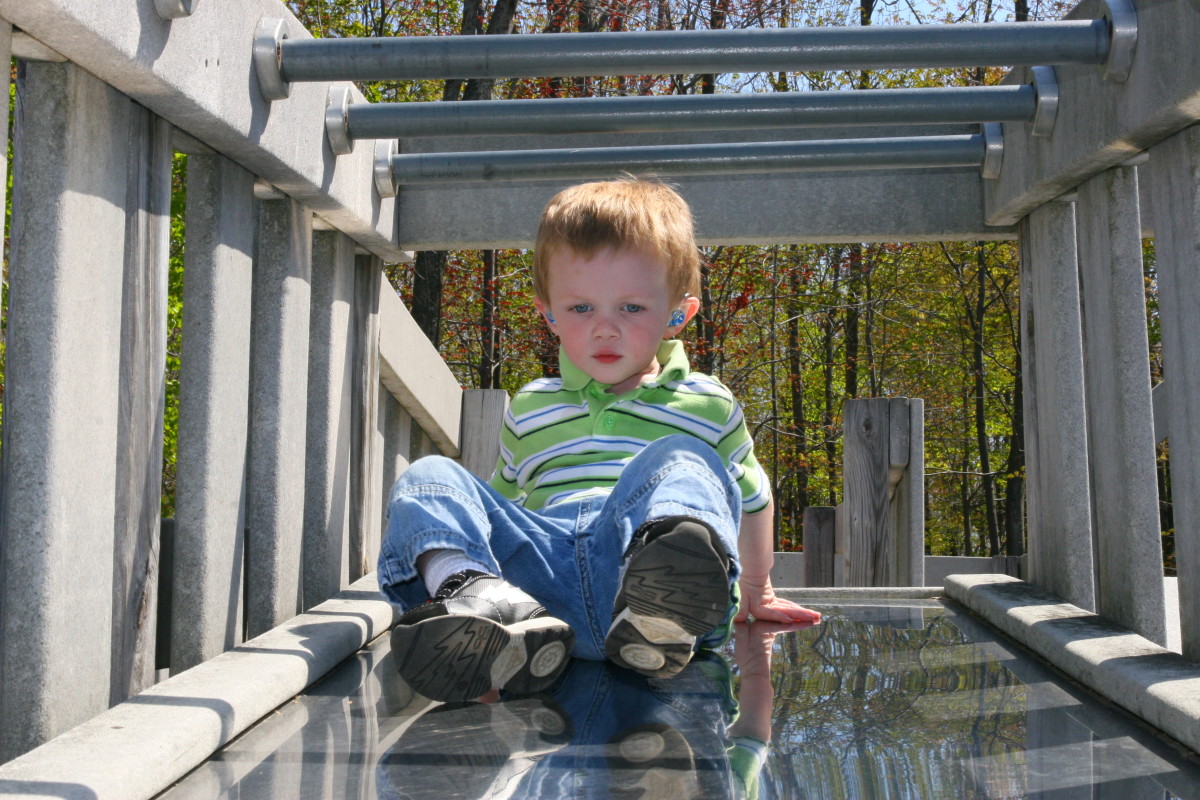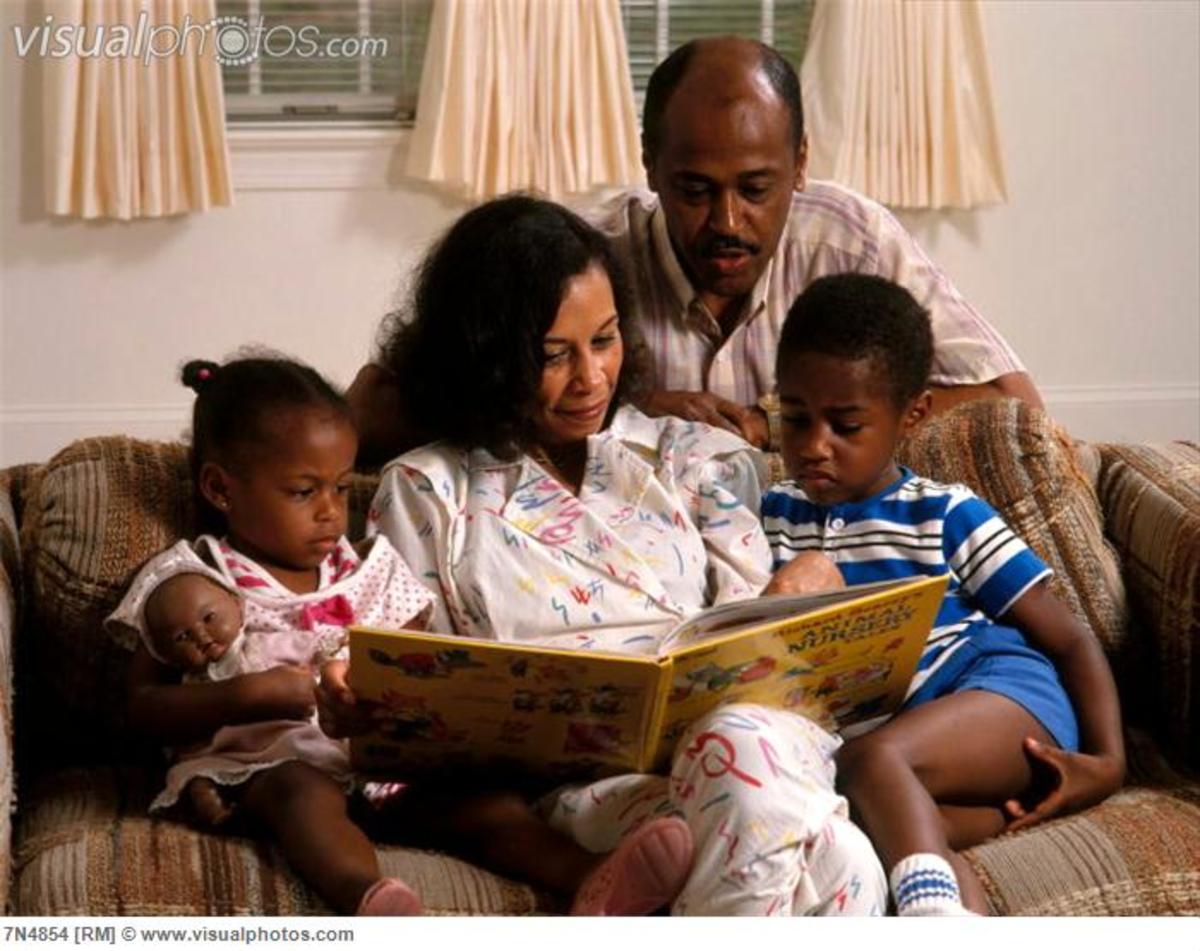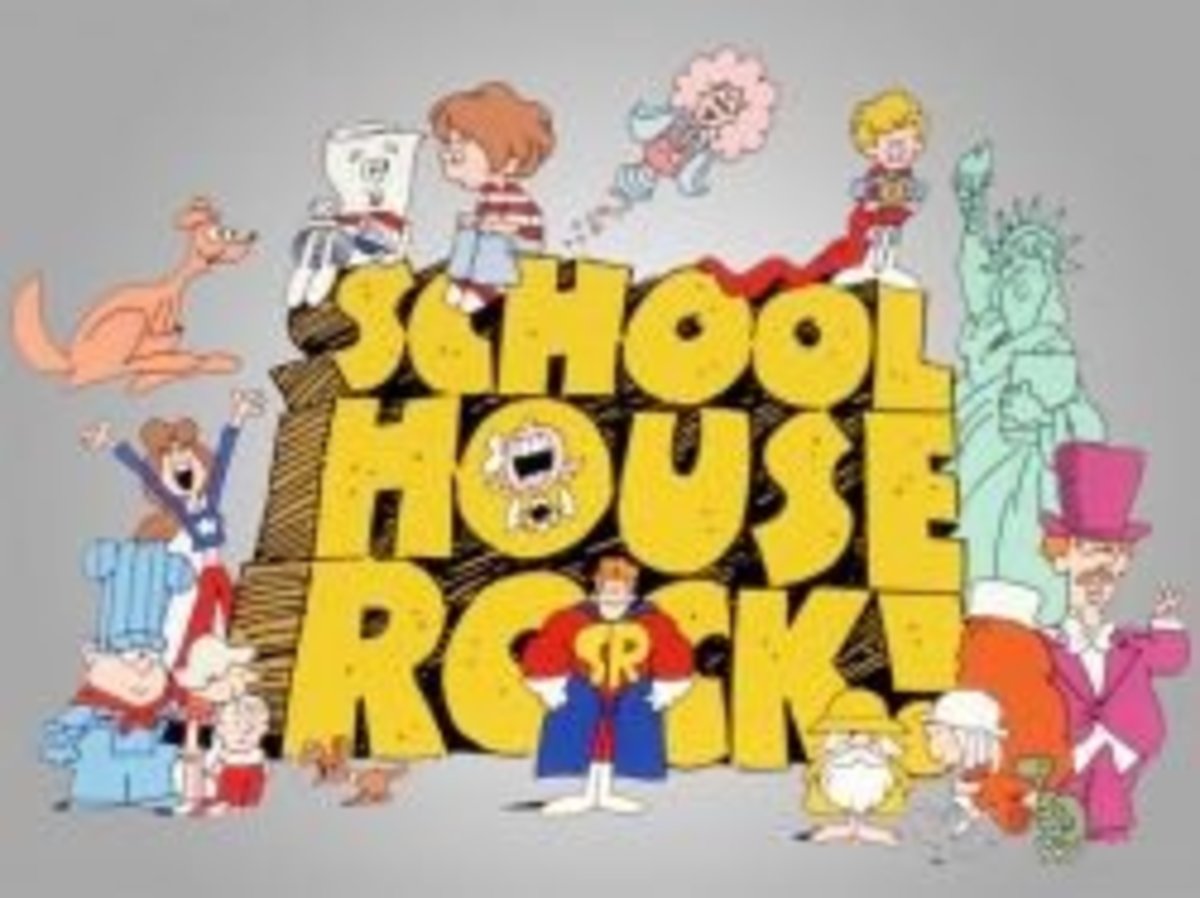Getting Your Child Ready for Kindergarten

Getting Ready for Kindergarten
Preparing your child for kindergarten involves getting them emotionally, mentally, and academically ready. Children need to have a certain level of speech and language development, as well as, having the social maturity to succeed in school. They also need to have accomplished some academic skills to survive in today's fast paced over crowded classrooms that many of today's schools have. Children must also have a certain level of motor skill development to be able to complete many tasks that they are expected to achieve in kindergarten. Children who start school behind in these areas will have a harder time keeping up with their peers in most classrooms.
Speech and Language Development
Speech and language development is very important to ensure your child is ready for kindergarten. To be successful in kindergarten your child must be able to communicate easily with his peers and teacher. He or she should be able to use full sentences when talking to others. It is imperative that you encourage your child to use sentences when asking for things and trying to tell you things. Allowing a child to point to get things is never a good plan. Insist they try to communicate their wants and desires to you. If after trying to get them to ask for things they want several times they still use one word sentences or point you may want to get your child checked by his pediatrician to ensure he hears well and does not have any other physical barrier that would prevent him or her from communicating properly.
Does your child have speech that can be easily understood by others? Children by the time they start kindergarten should be able to talk to people they don't know and be understood well enough to communicate with them. Some children may need speech once they start school to help improve the quality of their speech so that outsiders can understand them. Parents usually can understand their own children, so pay attention to how easily people outside of the home can tell what your child is saying. Listening to them speech to strangers or people they are not around often is usually one of the best indicators whether your child 's speech is appropriate for their age.
Does your child identify beginning sounds of at least some words? Can he or she identify at least some of the letters of the alphabet? Children about to start kindergarten should be able to recognize at least most of the letters of the alphabet and know some of their sounds when asked. There are many ways to help your child develop these skills. Flash cards are a very cost effective way to teach your child his letters and help them learn the sounds each letter makes. You can take the cards and go through them with your child and help them learn the sound they make. Ask them for words they can think that begin with that same sound. Help them make an alphabet book of their own. They can cut pictures out of ads and magazines to use in their pages of the alphabet. (ex- a is for apple). Let them practice tracing the letters of the alphabet in the sand or even in flour. Go on letter scavenger hunts with your child. See how many "a" words are in your pantry. Then go to "b" and so on. When you go places in the car see how many of each letter your child can find in road signs. There are also a number of really good free or low cost apps for your phone or ipad that can help your child develop these skills for skill.
Does your child understand the meaning of simple words? Children need to be able to understand instructions from their teacher when they start school. They need to know the meaning of words like "stop", "go", "look", etc. Does your child understand direction terms like "inside", "up", etc? Can your child follow simple directions and repeat them back to you? can they complete instructions that have more than one step to completion? These are things to work on with your child. If you tell you child to go to the kitchen and they do that, try to add a second instruction like, "Go to the kitchen and get your glass." Then you can even add a third step or a fourth step as they are able to preform the task easily. Teachers will have children in their classroom that are on different levels of ability. It is very important to make sure your child is as ready as possible to start school.
Does your child ask questions? Encourage them to ask questions. A child that asks questions is thinking about the world around them. Children are trying to figure out how the world works around them. They ask questions to learn how things work and why they work that way. As adults, sometimes we don' t always appreciate their endless curiosity about the world we live in. What we do not always remember and understand is a child learns more in the first ten years of their life than in all the rest of their life combined. Children are born with a natural desire to learn about their world. We need to encourage them to explore and learn about it.
Reading to your child is a great way to help prepare them for school. Not only does reading to your child encourage them to want to learn to read, but also helps them learn how to learn how stories progress step by step. As you read to your child ask them questions to help them learn comprehension. Ask them to sequence the events of the story in order which will help them learn to see that there are natural steps in a progression. Have them look at the pictures in the book and ask them to tell about them. They may even make up an entire story from them.
Reading, learning the alphabet, and asking questions are all ways that we help build a child's language development. Talk to your child and allow them to join in the conversation. Don't use "baby talk" to your child. Listening to you talk will help increase their language. They will learn new words and how they are used correctly as they listen to you. Children that are encouraged to explore their world and learn will be ready when it is time to start school.
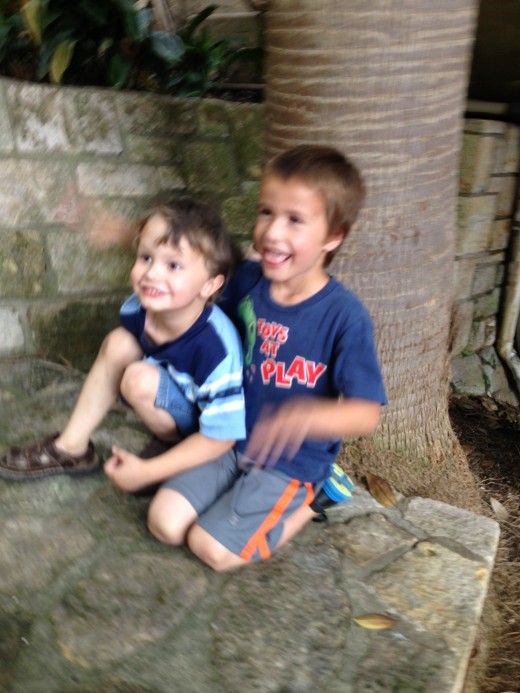
Helping Your Child be Socially Ready for School
Your child's social development is as important as his or her speech and language development. For a child to be ready for school he or she needs to be able to separate from the parents without becoming overly upset. A child that has separation issues is going to have a harder time adjusting to school. Your child not only needs to be able to separate from you, but needs to be able to do it for several hours at a time without becoming insecure about your returning.
A well adjusted child that is ready for school will most likely like to explore and try new things. A healthy curiosity is a good thing because it will motivate your child to try new things and encourage his or her learning process.
A child that is ready for school needs to recognize authority and follow rules and finish tasks as requested. A unruly child can distract the entire class making it impossible for anyone to really learn much.
Does your child get along with other children well? Does he or she share toys and take turns well? These are important qualities for them to develop so that they can succeed in school and life. Does your child stay on task and focus long enough to finish a project? Some children have to be encouraged to develop this key skill. You can give the child a task to do for longer and longer periods of time until they can focus on it long enough to actually finish it without help. Gently remind them if they start to get distracted by other things. Children can become overran with stimulus in their environment and have trouble keeping focused. This is especially true of children who are extremely active.
Before a child starts school they must be able to tend to their own toilet needs. Teachers cannot be expected to help twenty plus children with this. Encourage your child to learn to do this on their own as soon as it is reasonably possible. A child should also be able to dress themselves by putting on things like their own jackets and shoes.
Manners are very important any time a child enters the outside world. A child must learn to not interrupt others when they are speaking. They must learn to use "please" and "thank you" when addressing others. They should also know by this age how to follow simple instructions and safety rules and understand the consequences if they do not follow them.
All children who go to school need to learn to have self control and not have any physical aggressions toward others. Children who do not have these things mastered will spend a lot of time in trouble. A child that acts out at school causes problems not only for his teacher but for his classmates.
To prepare a child to do handle most of the social things that are expected of them for school are just natural things that he or she should be learning anyway. Just have your child if he fails to pick up after himself to come back and do it till he gets it right., Remind them to use proper manners when they forget. Consistently requiring your child to use good skills in this area will go far into preparing your child for school socially.
Making Sure Your Child is Academically Ready for School
Helping your child develop academically is easier than you may think. A lot can be accomplished by just talking to your child while running errands. You can help your child learn his full name and address by reciting it several times a day until he or she knows it. Displaying your child's name on things can help them learn to recognize it. look for shapes and colors in things around you. Make it a game. Talk about noticeable differences in things in the natural flow of conversation. (Ex- "This ball is big, but not as big as your yellow one.") Help you child look for and find patterns in things around them. When you go to a new place look at the ceiling tile and floor patterns. Point out the differences or ask them if they see any visible differences.
Talk about what is similar and why and what is different with your child. Look at several different leaves and ask your child to look for what is alike and what is different about each. If they are alike then ask why they are. Take time to count things with your child. If you are at the grocery store and you are getting can goods then have your child count them as you put them in the basket. These actions are easy to incorporate in your day to day schedule.
When you read to them point out you read left to right. Help them practice retelling the story in their own words. Tell them a bedtime story and have them tell you one. Point out differences, both positional and spatial. Give them items to sort. have them sort them by color, shape, and size. Make sure they know not only their name, but their age. Work on learning the numbers and the letters. Play matching games matching the upper and lowercase letters together.
Let your child glue objects like buttons on index cards and then write the same numbers on other index cards and let your child match them together. When you cook, allow your child help you by giving them simple jobs to do, such as, setting the table, or helping you measure something.
Take eating cookies as a chance to learn simple math equations. Give your child three cookies and let them eat one and ask them how many are left. Show them the math equation that goes with it. Learning can become a natural part of your life that teaches your child without requiring long hours of time to complete if we just look for ways to incorporate it in our daily life.
Daycare or Not
Do you think children that go to daycare are better prepared for kindergarten than children who have never been to daycare?
Helping Your Child Develop His Motor Skills
There are a number of things a child entering kindergarten should be able to do that require good motor skills. Not only should a child entering school be able to hold a pencil or crayon correctly, but they need to be able to cut with scissors. A child starting school should color and it look somewhat like a picture when he is done, not just scribbles. A child can practice these skills in a number of ways, such as, cutting out coupons for you. They need to practice tracing letters.
Can your child run, jump, skip, hop, or throw a ball and catch one? Does he build with blocks and other toys? These are valuable skills for him or her to work on before going to school. Kindergarteners spend a lot of time playing while learning and developing these skills will allow them to excel in these areas.
Both development of gross and fine motor skills is important and should be worked on. Playing with your child will easily help develop things like throwing a ball. Having your child take a few minutes while you cook to cut and draw will help develop their fine motor skills while giving you some neat refrigerator art work.
In Conclusion
Preparing your child for kindergarten does not have to be difficult and time consuming, but is worthwhile and important. A child that is ready emotionally, mentally, and academically will be better prepared to learn and will be more likely to succeed in school.

